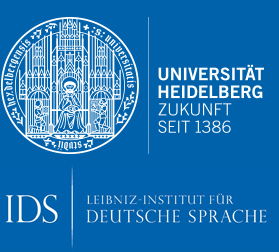What do we mean by language criticism? We define our object of investigation:
We define language criticism as the practice of evaluating language reflection and understand it to mean published and publicly accessible statements in which speakers – explicitly or implicitly – establish a certain language attitude, a certain language behaviour as an appropriate or inappropriate convention or norm (cf. Felder/Jacob 2014: 142).
What do we mean by criticism in general?
By criticism, we mean in general ›a scientific statement‹ and in particular ›a description and, if necessary, an assessment of phenomena based on criteria, values and value judgments‹. A distinction can be made between negative criticism (reprimand) and positive criticism (recommendation).
How is language criticism defined in German studies?
Since the 1970s, there has been a discussion in German linguistics about whether and how language can be criticized linguistically. Language criticism was initially understood here as the descriptive and criteria-guided recording of language-reflexive utterances in a society. At the turn of the millennium, the purely descriptive and criteria-led description and discussion of utterances postulating a specific language usage norm was expanded to include a further approach. The forms of language use that actually occur in society with language-critical implications are identified and described and discussed on a meta-level, from a historical and contemporary perspective. On the meta-level, linguists no longer rule out an assessment and a plea for a specific position after a criteria-led discussion. Attempts are now being made, on the one hand, to describe practiced language criticism and, on the other hand, to practice language criticism itself, according to linguistic criteria of appropriateness.
How do we define language criticism for the European comparison?
In comparison to the other philologies, the term language criticism represents a unique selling point of German studies. There is no equivalent translation in English, French, Italian, Croatian or Spanish of the concept language criticism. Regardless, there is a long language-reflexive tradition in these philologies of descriptive and normative description, recording and assessment of language usage habits, which are discussed from a linguistic (scientific) and lay linguistic point of view and then approved or rejected. In contrast to the Germanic tradition, the other philologies are far more open to value judgments and assessments of linguistic doubts and disputes.
Our definition of language criticism as the practice of evaluating language reflection wants to do justice to this tension between the purely descriptive recording of language phenomena (linguistic perspective) and its assessment (expectation of a linguistically and politically interested public). Therefore, evaluative means both ›measuring against a standard of value‹ and ›assigning or denying a certain ideal value‹. In this context, the definition language criticism is a practice of evaluating language reflection means the linguistic and lay linguistic description and evaluation of linguistic expression possibilities (cases of doubt, disputes, etc.). By disclosing the criteria and argumentation, linguistics, together with the public, contributes to language awareness in society (cf. Janich 2004).
What do we mean by European language criticism? We define our object of investigation from a European perspective:
With the anything but modest-looking label European language criticism, we want to strengthen a program and not postulate its fulfilment. We consider the relationships presented above to be highly relevant, in all languages. In view of the complexity of the phenomena associated with the program, we have concentrated on a few languages that we can study at the European Center for Linguistics (Europäisches Zentrum für Sprachwissenschaften) and the resources available there from the institutions involved – namely the Modern Philology Faculty of the University of Heidelberg and the Institute for the German Language in Mannheim are able to edit.
European language criticism therefore means two things: in addition to the description of (selected) individual language and (sometimes) national customs of evaluating language reflection, we are particularly looking forward to the European comparison – more precisely the systematic comparison of certain language phenomena of a similar nature from a historical and current point of view. With this perspective, we claim to work on a research gap and to do justice to a desideratum. We primarily describe language criticism practiced in Europe and are striving for European language criticism. In small contributions, however, we also practice language criticism ourselves (e.g. on the use of the Negro king in children’s literature).
Against this background, we advocate with Bär 2002 “a strengthening and institutional anchoring of language criticism in Germany” (Bär 2002: 241), but above all also in Europe. This does not mean the establishment of a central language-standardizing institution based on the French or Italian model, but a platform for exchange and discussion that includes universities and intellectual circles across languages and countries. The European Language Criticism Online platform aims to contribute to this.

